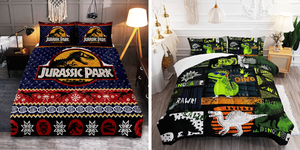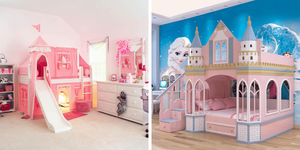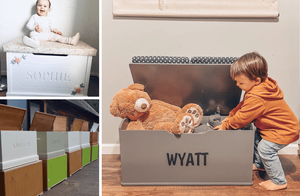As parents, the moment our children start to do something extraordinary – like lining up toys in a row – we can't help but wonder: could this be a sign that my child is particularly intelligent? The good news is there's actually reasons behind why some little ones take such an interest in arranging their world.
And no matter what their age or ability level, it can have tremendous benefits for playing and learning. So get ready to explore how early signs of matching, aligning and key skills development are linked with intelligence, as we dive into understanding why lining up toys may be more than just playtime fun!

Understanding the Basics of Intelligence in Toddlers
As a new parent, understanding the basics of intelligence in toddlers can feel overwhelming. Toddlers are busy little explorers, taking in everything around them like sponges. They learn by playing, watching, and copying those around them.
Intelligence in toddlers is all about how they process and use information they've gathered through these experiences. This can include problem-solving skills, memory, and language. Keep in mind that every toddler is unique and will develop at their own pace.
Also, don't stress if your little one isn't hitting certain milestones as quickly as their peers. Just keep providing them with love and learning opportunities, and watch them grow into their own wonderfully intelligent little selves.
What Does it Mean if Your Child is Aligning Toys in Groups
Is your child starting to line up their toys in groups? Well, it's actually quite common for young kids to do this! It's a way for them to explore order and categorization. Plus, it can be a lot of fun for them to see all their toys neatly arranged in a row.
You might even catch them talking to their toys as if they were in a little community. So, embrace the organizing phase and let your child enjoy their playtime. Who knows, maybe they'll become the next Marie Kondo!

Signs of Advanced Intelligence from Organizing Toys
Organizing toys can also be be a sign of advanced intelligence? That's right! When your little one starts organizing their toys by color, size, or type, they could be showing signs of a higher level of thinking.
So although aligning them is fairly common, if they are using more skills to categorize and understand shapes, colors and more, then this is a great indicator that they are advancing.
Aligning and categorizing is a great way to encourage their cognitive and motor skills and keep them engaged and stimulated – it could mean they're well on their way to becoming a little genius!
When To Be Concerned
However if you feel that this behavior is becoming excessive and repetitive, you may be wondering if this is a sign autism. Autism can trigger children to act in certain ways that appear repetitive and unusual to some. Children focusing excessively can be a concern sometimes.
If you have concerns you should seek professional advice from someone with experience in testing for autism spectrum disorder. Children develop at different stages and in various ways, but you know your child best.

Benefits of Parents Organizing Toys for Early Development
As new parents, we all want what's best for our little ones. And one simple way to support early development is by ensuring their toys are well-organized. It's not just about tidying up (although that's always a plus!). When toys are structured in an organized manner, children are more likely to focus their attention and engage in imaginative play.
Plus, they can help you to do this, make it in to a fun activity. It can even improve fine motor skills as they begin to sort and categorize their playthings.
So the next time you're picking up after a lively play session, take a moment to arrange their toys in a way that encourages your child's growth and sense of wonder.

At Home
One way to ensure that their toys are positioned in such a way that encourages them to play and explore is to use Montessori furniture in their bedroom. These types of bookshelves, tables and beds allow for the child to be able to do things for themselves.
Instead of asking for a book, they can get it. Instead of waiting or you to bring them the Legos, they know where they are and can access them easily. This will help to raise intelligent children that love to learn in their own time.
We've done a lot of research on the best furniture pieces to encourage kids to develop at home and here are our finds.
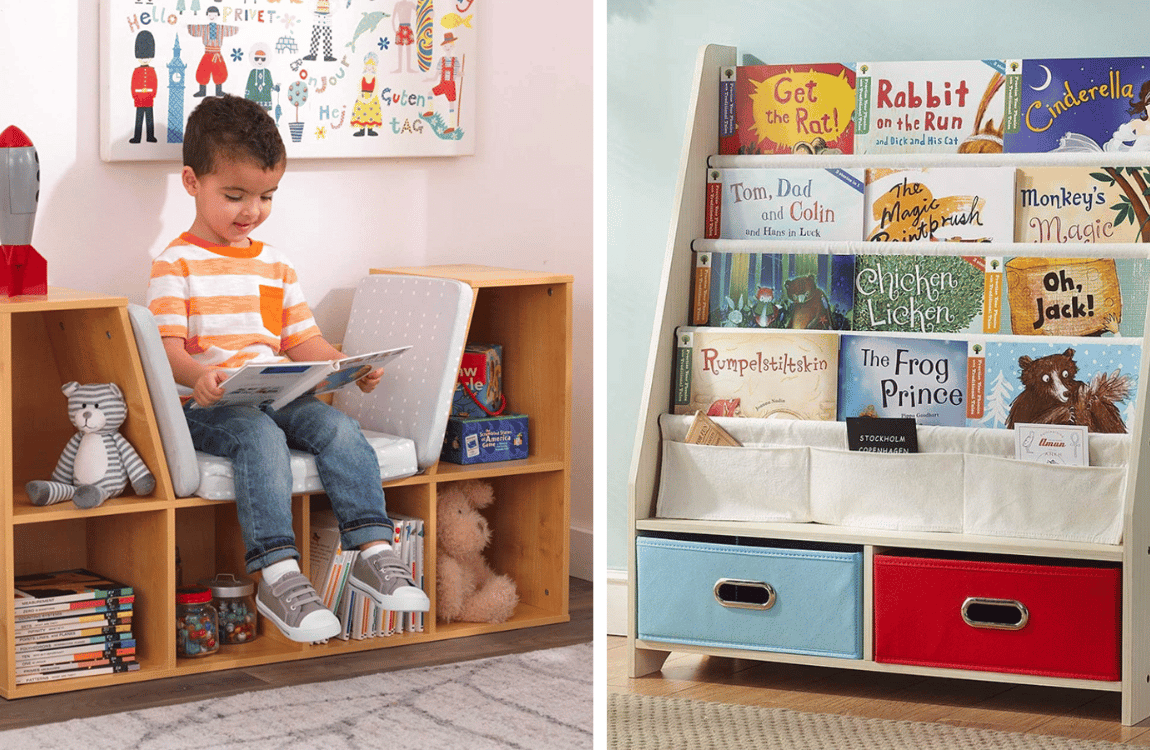

How to Support and Encourage more Skills
As a new parent, it's natural to feel anxious about your child's development. But don't fret! There are plenty of ways you can support and encourage your child's skills, including language skills and congnitive skills.
There are some amazing books for young kids. Here are our favorites.

Even something as simple as narrating your daily routines can help many children understand language more easily and pretend play can help with cognitive development too.
So go ahead, have fun with it! Sing, read, and talk to your little one as much as possible, and watch as they blossom into a confident, articulate communicator. Your child will thank you for it later!
Learn Through Play
Toys, kids love them! But some are better for development than others. Sure the Barbies are fun, and help with imaginative play. But to encourage problem solving and motor skills, try toys that get their minds thinking.
Introducing new and interesting toys doesn't need to be expensive, try and find a toy swap with other moms.
How does that work? Why did that move that way? How do I do that?
They love to figure things out for themselves. And Montessori toys are great for that too.
We've got the best developmental toys for one year olds, then 2 year olds and more.

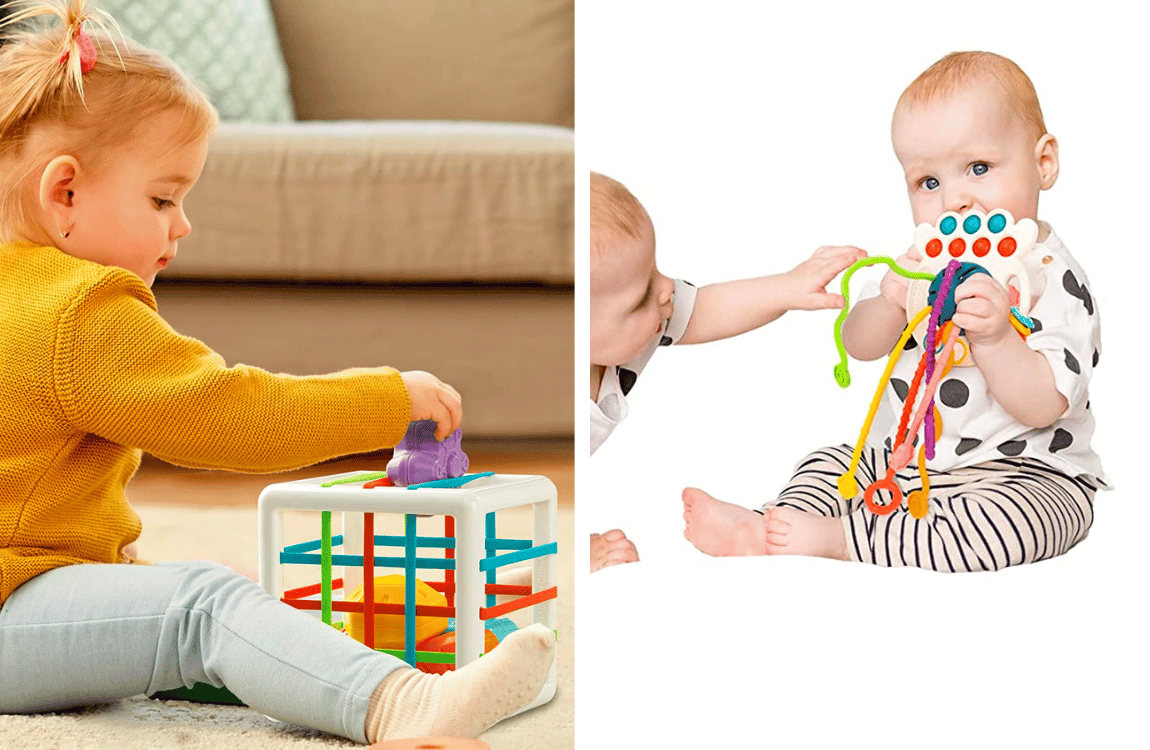

So, Lining up Toys is a Good thing!
Lining toys up may just look cute and adorable, but it is also an early sign of intelligence in children. It is a great opportunity to help them develop their motor skills, problem-solving ability, spatial understanding and hand-eye coordination. Whether its their toy cars, figures, blocks or their snacks, let them be.
Most importantly, it helps them learn how to think ahead and crave learning more things which will benefit them throughout their learning journey. So the next time your child starts lining up their toys, seize the moment by encouraging and supporting him or her!
With all these early signs of intelligence, you’re well on your way to be being a proud parent of a smart little one!

Sign of Early Intelligence FAQs
I'm sure you've got some more questions about this topic. So here's a few FAQs.
What are some early signs of intelligence in young kids?
Some early signs of intelligence in young children can include an expansive vocabulary, curiosity about the world around them, early reading skills, strong memory, and the ability to understand and follow complex instructions.
Can an early display of social skills indicate intelligence in a child?
Yes, early display of social skills can indeed be a sign of intelligence. Children who are intelligent often show empathy and understanding towards others at a young age, and can navigate social situations intuitively.
Does an interest in reading indicate intelligence in children?
An interest in reading can definitely be a sign of intelligence. Children who show an early interest in books, storytelling, and language often have advanced cognitive abilities.
Can a strong memory be an indicator of intelligence in kids?
Absolutely! A strong memory can be a sign of intelligence in children. Kids who can recall details, facts, and events in detail often have higher cognitive abilities.
Is problem-solving ability a sign of intelligence in young kids?
Yes, problem-solving ability is a clear sign of intelligence in kids. If your child can quickly solve puzzles or understands complex games, it is likely they are showing early signs of high intelligence.


